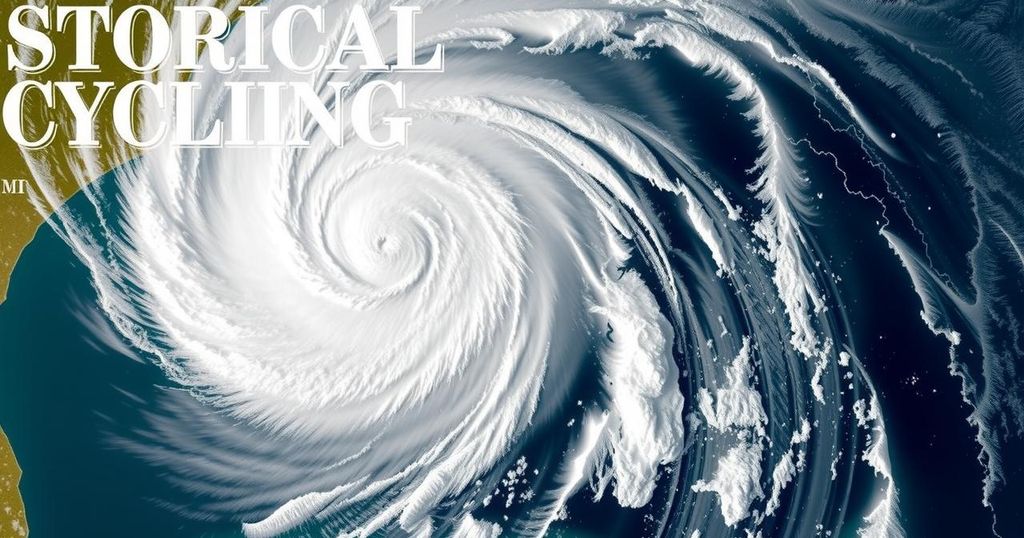Situation Report on Intense Tropical Cyclone Chido in Southern Africa
Intense Tropical Cyclone Chido made landfall in Mozambique, prompting WFP to coordinate an emergency response, including food aid delivery. The cyclone weakened as it moved to Malawi, with no immediate support needed. Northern Madagascar was minimally impacted, but WFP is ready to assist if necessary. The cyclone adds pressure to regions already facing challenges from prior extreme weather events.
The WFP Regional Bureau for Southern Africa reports on the impact of Intense Tropical Cyclone Chido, which made its initial landfall on the island of Mayotte on December 14, 2024. Following this, the cyclone struck Cabo Delgado province in Mozambique on December 15, prompting the World Food Programme (WFP) to mobilize its emergency response efforts, including the provision of food aid and the dispatch of vehicles to inaccessible regions.
On December 16, Cyclone Chido diminished to a Moderate Tropical Storm while making landfall in southern Malawi. Currently, WFP is maintaining vigilance over the developments in this area, although immediate assistance is not deemed necessary. Meanwhile, northern Madagascar managed to escape significant repercussions, as the cyclone did not directly impact the region.
Government agencies are overseeing coordination efforts in Madagascar, and WFP remains poised to offer support if it becomes required in the future. The repercussions of Cyclone Chido are particularly concerning as they compound existing vulnerabilities in communities already distressed by prior adverse events, including a recent El Niño-induced drought that has severely affected agricultural productivity and food security in the region.
Tropical Cyclones, such as Chido, pose significant threats to coastal and island communities in Southern Africa, particularly in Mozambique, where weather-related disasters have been frequent. These cyclones are often accompanied by severe winds and torrential rains, leading to flooding, infrastructure damage, and displacement of populations. The impact of climate change has resulted in increasing severity and frequency of such events, leading humanitarian organizations like the WFP to remain on heightened alert to provide necessary assistance. Understanding the broader context of such natural disasters helps address the cascading effects on food security and nutritional status of vulnerable populations.
In summary, Intense Tropical Cyclone Chido has significantly affected Mozambique, prompting immediate emergency responses from WFP. Despite the storm’s weakening, its effects are compounded by pre-existing vulnerabilities due to recurrent droughts. The proactive stance of WFP in coordinating aid and monitoring conditions is crucial in mitigating the cyclone’s impact on affected communities. Moreover, WFP’s readiness to provide assistance in Madagascar illustrates their commitment to swift humanitarian action in times of crisis.
Original Source: reliefweb.int




Post Comment